6 Best PMI Certifications you should consider in 2020
The Project Management Institute (PMI) is a global, nonprofit, professional organization. Its primary aim is to elevate project management practices. It was founded in 1969 and presently has more than 3 million project management professionals across the globe.
As a leader at improving and certifying project management professionals, PMI has a global footprint in nearly 218 countries. Its global headquarters is in Newton Square, outside of Philadelphia.
This article shows you the critical certifications under the PMI platform. We’ll explore their prices, requirements, and exam outlines. Furthermore, you'll know what to do to maintain the certifications after passing the exams.
PMI provides the perfect platform for Project Managers
PMI provides certifications, career training, and educational resources for project management professionals. It also maintains research programs to advance scientific and practical abilities within the industry.
The certifications that PMI offers are extremely valuable to businesses, especially those with substantial IT components. Since IT requires complex processes with technical protocols, the standards for implementation are stringent.
So are you an enterprise owner that wants error-free implementations? Or do you want compliance with IT standards for your projects? Then you stand a better chance when you hire someone with a PMP or other PMI certifications.
Some of the offers of PMI and its affiliated organizations are:
- Education
- Research
- Advocacy
- Networking opportunities
- Project management tools
PMI Certification Programs
PMI has a variety of programs for project managers. All you have to do is find out which one you qualify for and set the ball rolling. Here are some that you might find useful.

Project Management Professional (PMP)
The PMP certification is arguably the most respected international certification in project management. It is the gold standard in certifications, and the number of PMPcertified individuals reached 932,720 as of August 2019.
The certification process involves an all-encompassing test of the PMI’s Project Management Book Of Knowledge (PMBOK). This test focuses on the management of the three project constraints; time, cost, and scope.
The program aims to impart comprehensive knowledge on how to adequately handle an entire project. These processes involve
- Planning
- Scheduling
- Controlling and
- Monitoring
PMP is one of the most challenging of all the project management certifications offered. The bar is set pretty high in terms of the prerequisite experience as well as the application process. So the training program and the examination itself will require a certain level of rigor and competency.
But rest assured that the outcomes will be worth every effort. As a certified professional, organizations around the world value your efforts.
Here’s how you can get started on your path to a PMP certification.
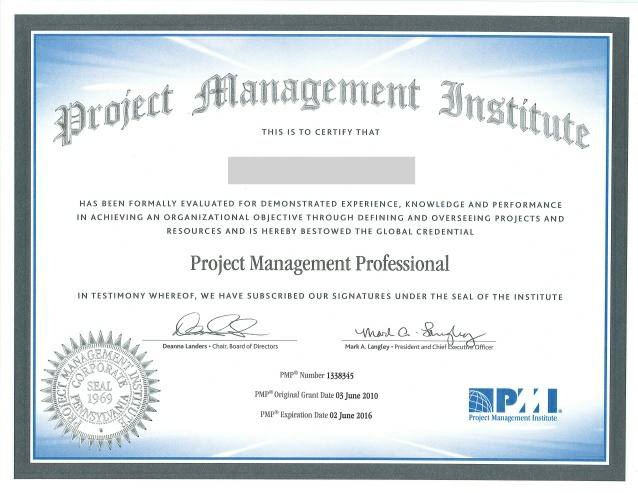
Certified Associate in Project Management (CAPM)
If you haven’t been a project manager long enough to apply for your PMP, not to worry. You can go for the Certified Associate in Project Management, CAPM. The CAPM is PMI’s entry-level project management certification.
You can get the CAPM certification with less than a year’s experience as project management. Or just 23 hours of training, needed as a prerequisite, intended to demonstrate candidates’ understanding of the fundamental knowledge, terminology, and processes of effective project management.
Here’s how to get CAPM certified:
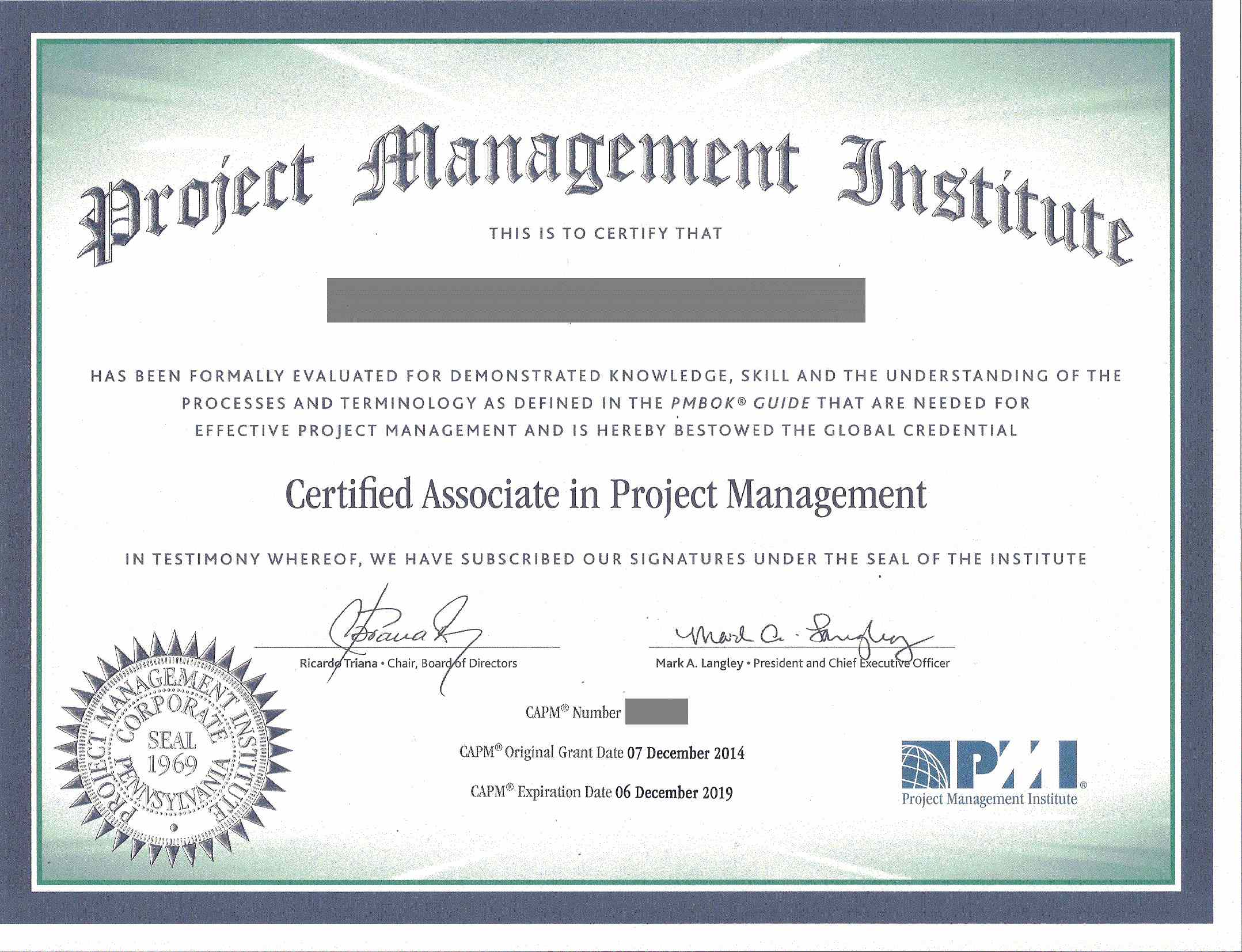
Program Management Professional (PgMP)
The Program Management Professional (PgMP) certifies program managers. These managers can efficiently juggle several major projects simultaneously and meet business objectives. So this credential recognizes the advanced experience, skill, and the proven ability to manage multiple, related projects.
PgMP credential holders oversee the success of a program by navigating complex activities across organizations. Since the program manager groups several related projects, he's more efficient than a stand-alone project manager. This credential shows that you have advanced as a project manager and gives you an edge over your peers.
Here’s how to get PgMP certified.
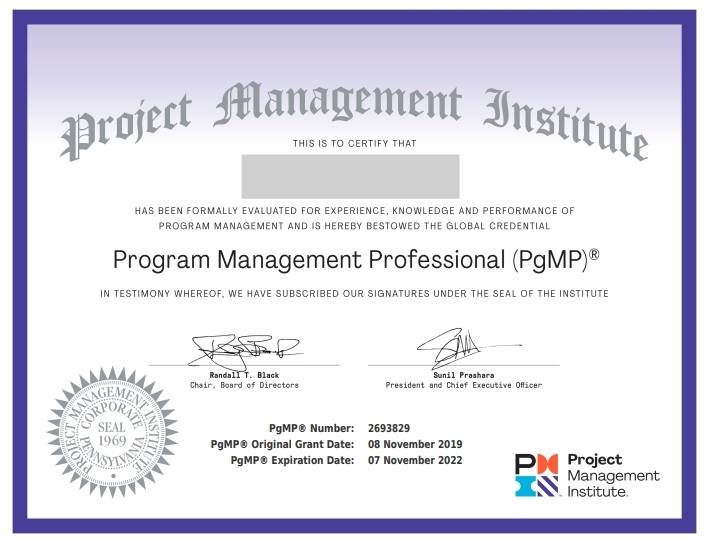
Risk Management Professional (PMI-RMP)
The PMI’s Risk Management Professional (PMI-RMP) certification demonstrates a professional’s specialization in risks. This specialization deals with:
- Risk assessment
- Identifying risk and
- Risk controlling
This course empowers you with the knowledge and skills required to clear your PMI-RMP® exam at a sitting. You’ll be able to assess the risk velocity and ascertain the route to risk mitigation by prior planning.
PMI-RMP is a specialized credential offered by PMI in response to the growing need of risk managers. Prepare for the PMI-RMP certification exam through this four day, instructor-led course. This course provides an in-depth look at risk management through a PMI perspective.
You'll get the course as a combination of lectures and hands-on learning format. It covers all components of risk management, including:
- Planning
- Identification
- Quantification
- Response planning and
- Monitoring and controlling risks
Participants will learn to maximize the results of positive project events and minimize the consequences of adverse events. These results and effects include those that are both internal and external to the project.
Here’s how to get RMP certified
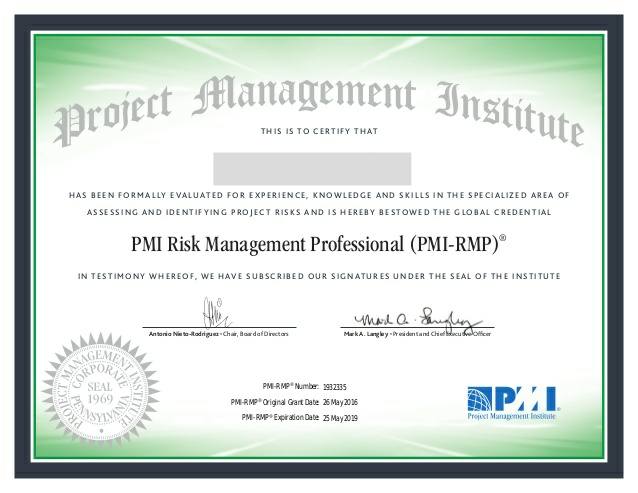
Professional in Business Analysis (PMI-PBA)
A PMI-PBA certification is one of the fastest-growing certifications in business analysis and project management. Business analysis has become a critical competency of project management. So if you want to advance in your career, PMI-PBA certification can help.
The PMI-PBA certification is right for you if you:
- Work with project teams and manage requirements
- Deal with product development, or
- Are a project or program manager who performs business analysis in your role
Here’s how to get PBA certified
.jpg)
Agile Certified Practitioner (PMI-ACP)
The PMI Agile Certified Practitioner formally recognizes your knowledge of Agile principles and your skill in Agile techniques. It will make you shine even brighter to your employers, stakeholders, and peers.
The number of organizations adopting Agile practices has increased exponentially over the past few years. So the need for Project Managers to implement these Agile techniques has also increased. Hence professionals who have worked on the Agile front as project managers or as team risen.
If you want people to recognize you as a project manager in an Agile environment, aim for the PMI- ACP® certification. It’ll give you the edge they need.
Here’s how to get PMI-ACP certified
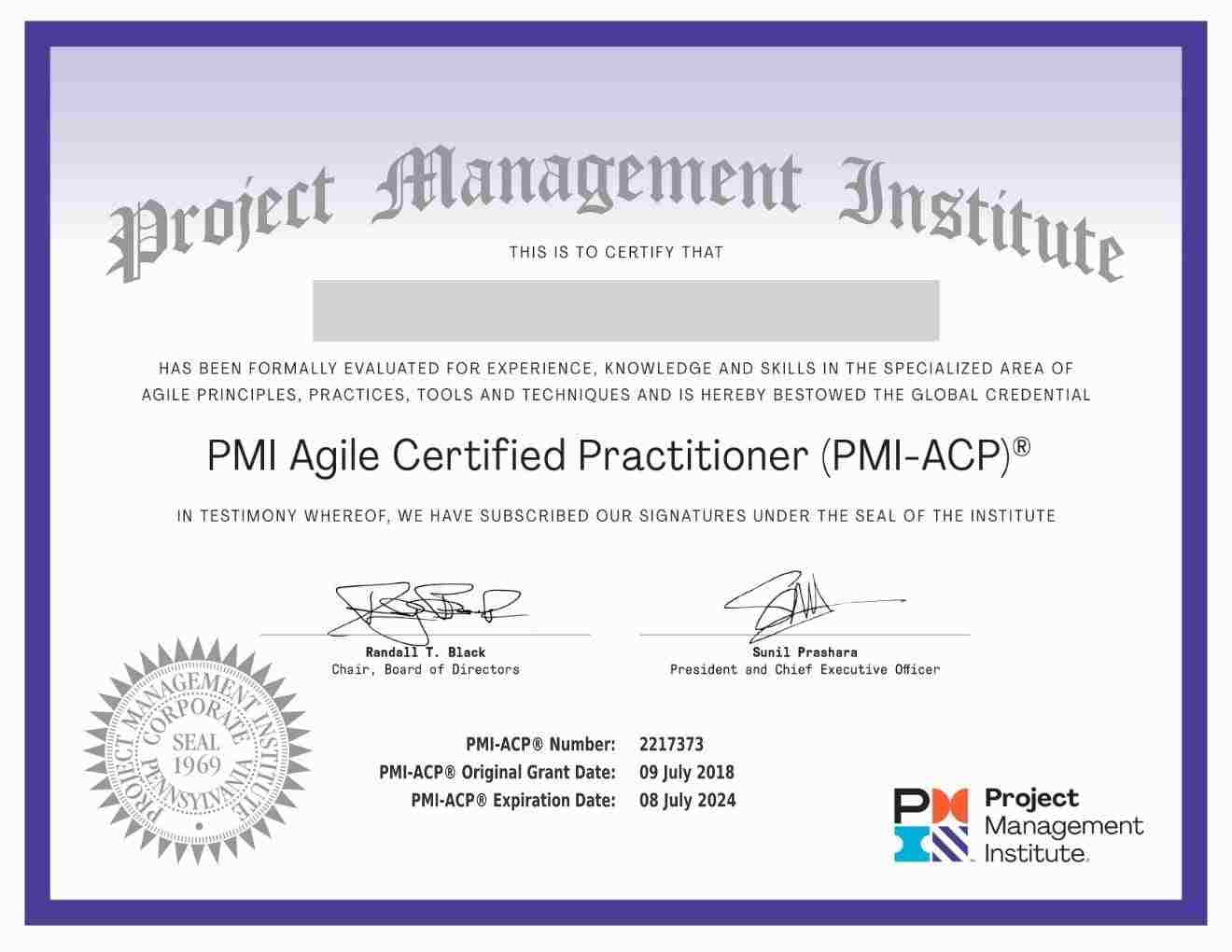
Conclusion
In today’s highly competitive world, businesses continuously look for ways to optimize time and resources. Project managers play a crucial role in bringing all the project stakeholders together. Hence, they’re the driving forces that ensure that the team makes and uphold their commitments.
It’s the project manager’s job to make sure that the clients get their expected outcomes. Such as meeting deadlines and working with the client’s budget.
Here, your PMI certification can prove to be a huge asset for professional growth. The skills imparted are not based on one specific methodology alone. Hence, they’re flexible, adaptable, and easily transferred between industries, market segments, and locales.
Earning the latest PMI certifications proves your up-to-date awareness of changing processes, terminology, and best practices in the PM field.
Get the PMI advantage — and stay ahead of the rest!
Upskill your career. Click here to explore courses